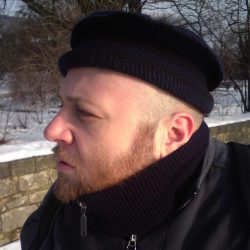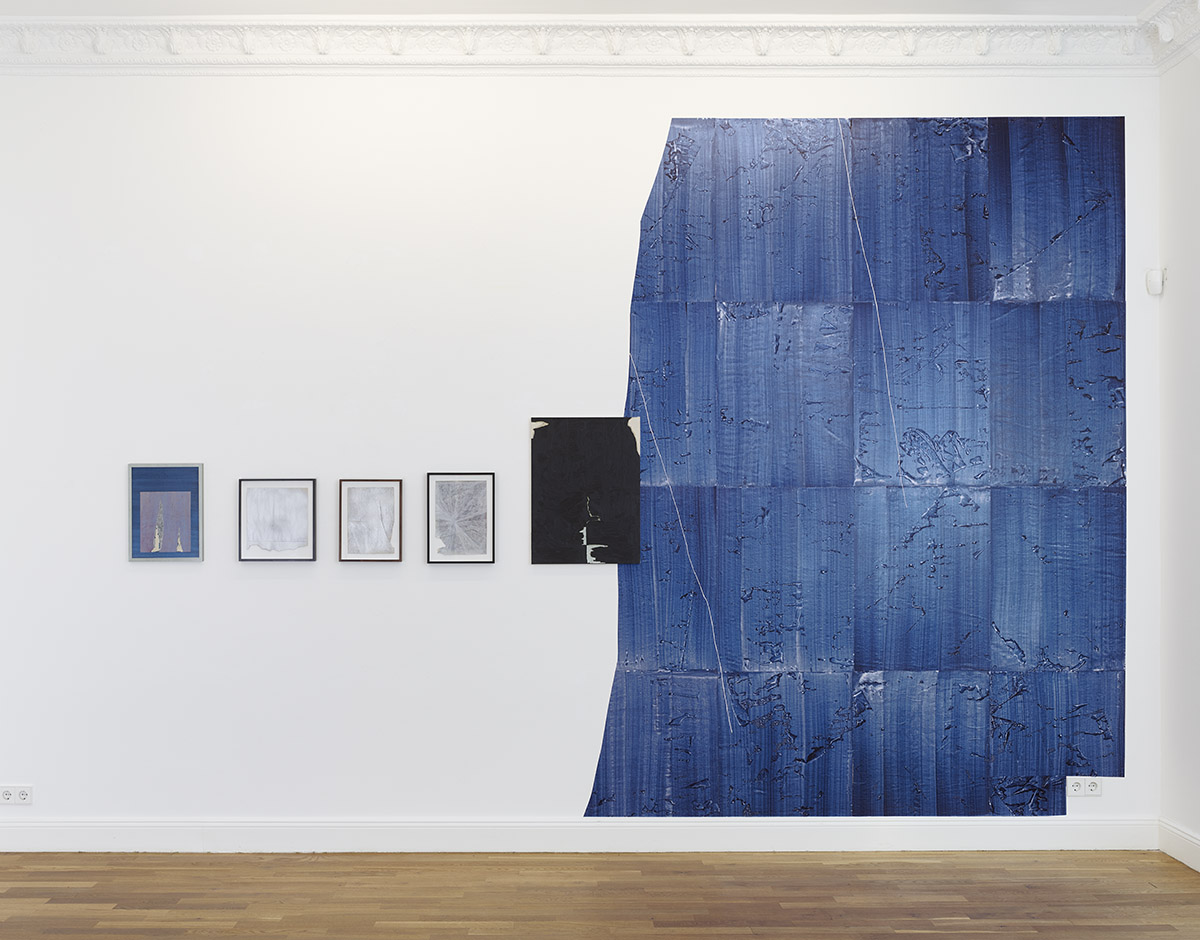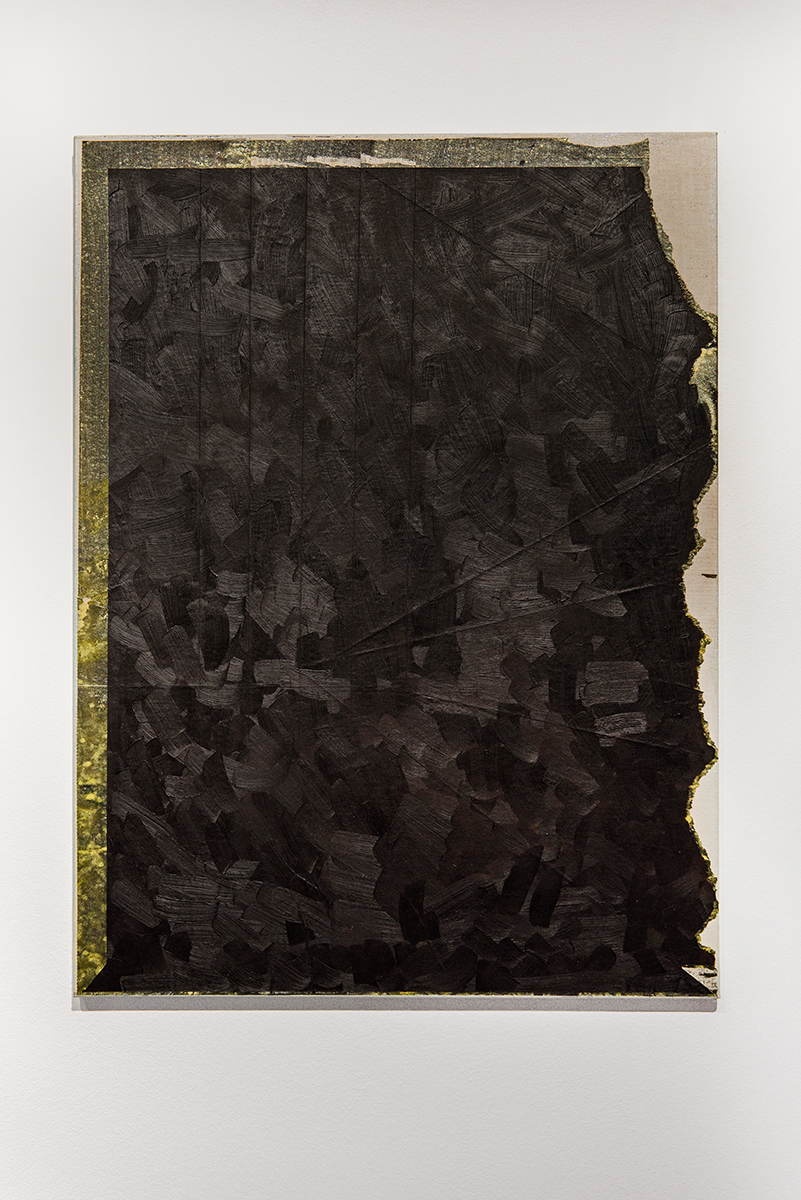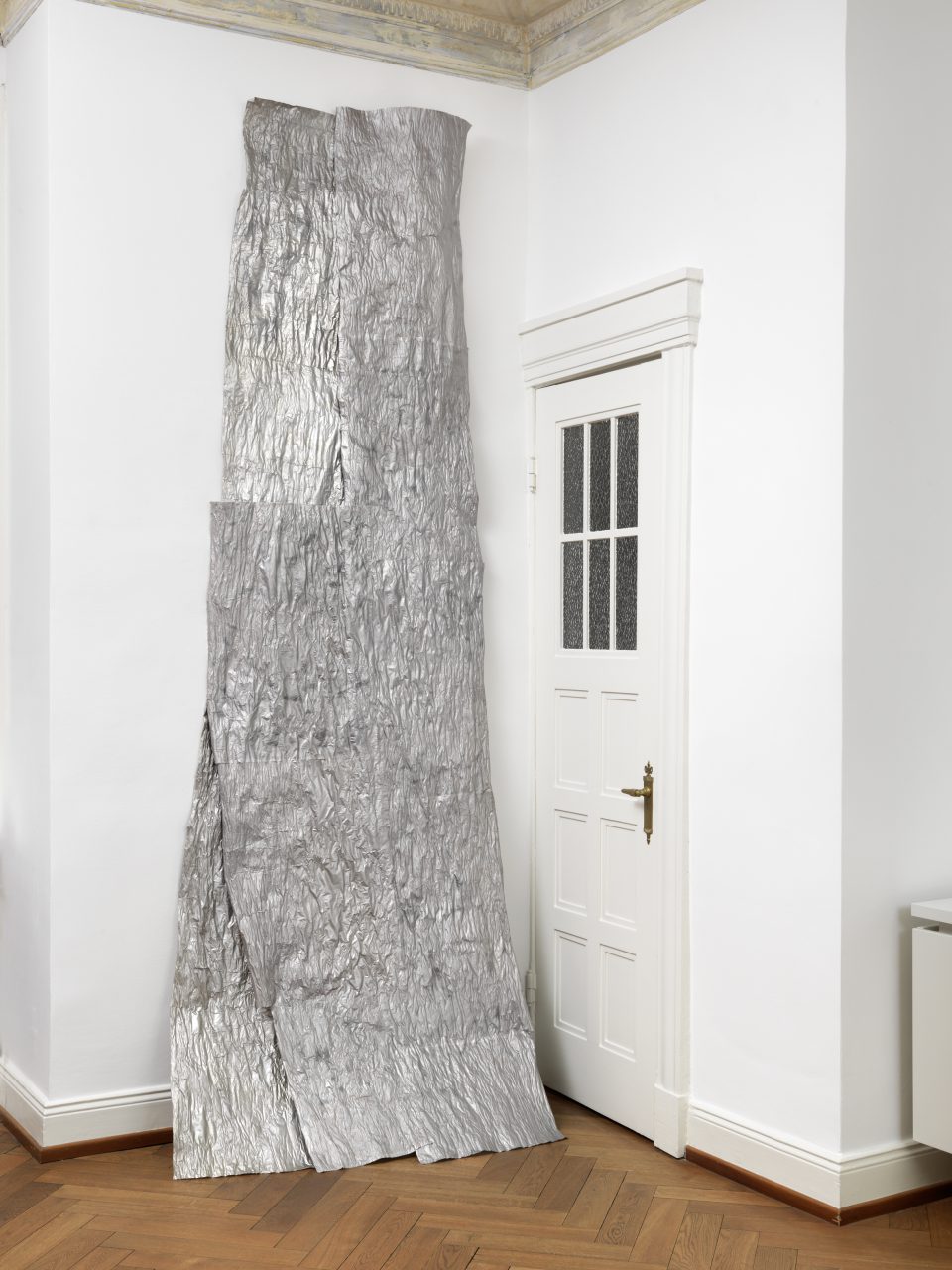
STEFAN LEYH
...Page is loading...

Bernd Borchardt
Berlin/Germany
From the very beginning, Berlin painter Anke Völk’s work has aimed at expanding the range of possibility, and namely on the basis of an eclectic art-media pallet that always implicitly deals with pictorial issues. Nevertheless – or perhaps exactly for this reason – an artist like Anke Völk can be considered one of the more complicated figures in an art history based on the concept of disciplines. Judging solely by the body of paper-based...
Read moreFrom the very beginning, Berlin painter Anke Völk’s work has aimed at expanding the range of possibility, and namely on the basis of an eclectic art-media pallet that always implicitly deals with pictorial issues. Nevertheless – or perhaps exactly for this reason – an artist like Anke Völk can be considered one of the more complicated figures in an art history based on the concept of disciplines. Judging solely by the body of paper-based works she has created in recent years, it is clear that no simple classification is possible. Her new exhibition ON in Drawing Room consequently combines a series of highly diverse works in a new installation which naturally incorporates the exhibition venue, and uses shimmering wall pieces and kaleidoscopic paintings to convolute and expand the space. In this configuration a ‘Völk work’ categorically does not stand for something else, being intended neither as a mouthpiece for some subjective theory, nor as a memento mori of a bygone epoch in which abstraction was equivalent to revolution. Self-references, which appear primarily as half-hidden, silk-screened copies of earlier works of hers, are therefore to be read in this context solely as the occasional necessary assertion of her own individual artistic standpoint.
Without a doubt, all of Anke Völk’s works have retained something of the essential, complex quality of pre-modern compositional sensibilities, in which pictorial and real space merged into one another, and paints were so precious one rationed them carefully: purple for the king, blue for Mary, and silver and gold for the church. The rest stayed grey. Although: All things become grey when the light fades. Darkness follows inevitably, when light remains absent until black finally relays absolutely no more light to the eye, and absorbs the wealth of colours. In the history of colour theory, Goethe was not alone with his declaration: “Nothing bright can compose itself from dark things – just as from more and more shadow, no light originates.” In Völk’s luminous, atmospheric experiential space, which brings the tangible into relationship with the intangible, the opposite nevertheless occurs. In this space, the artist does not just reduce colours to their original components, namely to light and to the painting underground from which light is reflected; she also achieves the same results with the non-coloured antipodes white and black, and the indeterminate hybrid grey. As a product of her analysis of the dynamic potential of colours, she produces metallically gleaming surfaces with the lucid quality of water, and the dull lustre of polished metal. The mercurial, potentially space-consuming quality of the sheets of colour mounted directly on the wall is initially held in check only by its unfinished character. The austere framework structure of the canvases, which appear as pictures within pictures, proves to also have formal borders, although the vibrant colour field in the background loses none of its radiance thereby. Together, installation and relief produce a magnificently colourful, elegant spectacle. This chromatic diversity is then mirrored on the exhibition’s night side. The dark canvases hanging opposite transcend the glow of their intensely coloured counterparts in a subtle game of hide and seek, in which multiple layers of colour and material reveal their true character through scratches and isolated flaws. The material plays a role of its own in this, but never becomes the content.
Thus ON, like all of Anke Völk’s installations, is an arena for the old conflict of abstraction: of an existence as artwork with no direct relation to the world, and its quality as decorative object and surface. For this, the artist activates the polyvalence of the effect. The result is the abrogation of abstraction’s elitist, hermetic character. In this way, abstract art can be revitalized in the current context.
Susanne Prinz

Untitled, 2018, acrylic, pigment, oil, paper on canvas on MDF, 63x47 cm; Photo: Daniel Antonio Rodríguez

Untitled , 2015 (2 pieces) varnish spray, several papers, each approx. 300 x 80 x 6 cm, Installation view "ON", Drawing Room, Hamburg, 2018; Photo: Bernd Borchardt,
What is it about your studio space that inspires you?
The light and layers
What is your favourite material to work with? How has your use of it evolved throughout your practice?
pigments, acrylic, oil, paper, canvas, aluminium,
What are your favourite places besides your studio?
any place with family and friends
2021
UNTITLED MULTIPLICATION - ONE OF EACH #5, mit Henrik Strömbergs, Lage Egal, Berlin
Mural, Korridor KM58, Berlin
2020
The secret is keep going/ Anke Völk, bcma Galerie, Berlin
show all
Kienzle Art Foundation, Berlin
Landesbank Baden Württemberg , Stuttgart
Ministerium für Wissenschaft, Weiterbildung, Forschung und Kultur, Rheinland-Pfalz
show all
Drawing Room Hamburg | http://www.drawingroom-hamburg.com/
2021, Recherche Stipendium, Senatsverwaltung für Kultur und Europa, Berlin
2020, Arbeitsstipendium Neustart Kultur, Stiftung Kunstfonds Bonn
2012 Atelierförderung, BBK, Berlin
show all
Lectures/Talks: 2020 Hearing, Professur für Malerei/Grafik, Hochschule für Grafik und Buchkunst, Leipzig; 2018 Le Salon plastique présente: Anke Völk, Berlin; 2017 Lecture, invited by Prof. Georg Imdahl, Kunstakademie Münster, Münster Lectures; 2016 Seminar Experimentelle Malerei-Werkstattbegegnungen mit Studierenden, Lehrgebiet Bildende Kunst/Maltechnik, Hochschule für Bildende Künste Dresden